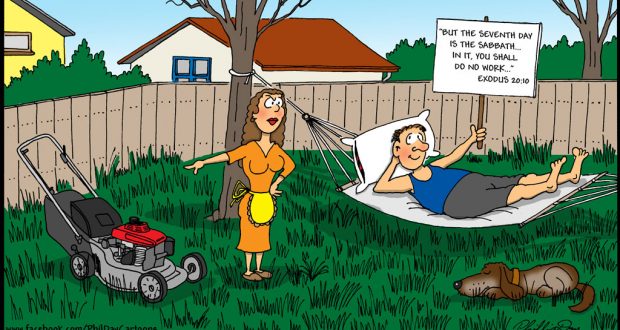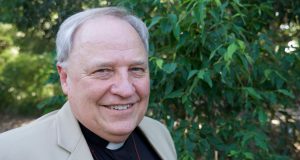Sunday-best clothes, church, roast lunches and lazy afternoons are Sunday memories for many older Christians. Dianne Jensen explores whatever happened to the Sabbath.
For most Australians, the measured pace of Sunday has given way to the frenetic demand for unlimited access to entertainment, sport and commercial services. We are willing participants, giving way to the insidious tug to constantly check our mobile devices in case the world has moved on without us.
And yet, like the images of lost childhood, the concept of the Sabbath still evokes a sense of longing for peace and renewal. In our secular world, the move to reclaim the Sabbath has become countercultural—a bold assertion that we were made for more than relentless consumption.
Radical roots
A regular day of rest is a Judaic legacy, one of the commandments delivered by Moses to the Israelites after their escape from Egypt. The Sabbath (which Jews celebrate on Saturday, along with groups like Seventh-Day Adventists) was a statement of identity and a sign of a new covenant with God.
Jesus ran afoul of the strict legal code of Sabbath observance by gathering grain and healing people, declaring that “The Sabbath was made for man, not man for the Sabbath”. (NIV Mark 2:27)
Sunday became a universal day of rest when the Roman emperor Constantine I introduced regulations against Sunday labour in 321 but it was the Scottish and English Reformers such as John Knox who introduced the idea that Christians were bound to a specific code. This “Sabbatarianism” is enshrined in the Westminster Confession of Faith (1646) and holds that not only is work forbidden on Sunday but also “works, words, and thoughts” about “worldly employments and recreations”.
John Wesley was uncompromising in his polemic “A Word to a Sabbath-breaker”. But along with his denunciation of those who imagined that morning worship might reasonably be followed by an afternoon at the pub, Wesley reminded his followers that the Sabbath is a day of grace, made for mankind. He wrote, “For thy own sake He demands a part of thy time to be restored to Him that gave thee all.”
In other words, the Sabbath is good for us.
You can’t do that on Sunday!
At 94, Lionel Rackley’s early memories centre on his local Methodist church. A long-time member of St Andrew’s Uniting Church in Brisbane, Lionel now attends Redcliffe Uniting Church’s “Heart and Soul” Thursday service.
“We spent the Sabbath pretty much at church. The morning service used to be at 11 o’clock and in the afternoon it was Sunday School and often we went to night service as well. The Order of Knights were strong at our church and we were all involved in the Sunday School in some way or another.”
Lionel’s conventional life was interrupted by the second World War, when he joined the air force and flew with the Royal Air Force on bombing raids over Germany. On his return, Lionel struggled with restrictions which had once seemed normal.
“I got home and I’d spent several years bombing people and killing people on Saturdays and Sundays and any other day that anybody said. I was home this Sunday afternoon … so I said to my mother, I’ll mow the side lawn for dad, it’ll save him a bit of time. She didn’t say anything and I got the mower out. When Dad came home I copped a verbal lacing for mowing the lawn on Sunday. To me, if it’s good enough to kill people on Sunday, [then] I’m not doing any harm mowing the lawn, but he didn’t see it that way.”
Not surprisingly, the post-war generation started to wonder why they couldn’t play sport, go to the shops, and watch films on Sundays. Restrictions were gradually whittled away, although Sunday trading remains a fraught area between small and big business and workers.
Not just another day
Pastor Donna Muston ministers in Biloela, a regional town where church commitments have always been balanced against the realities of life on the land. It’s even harder now, she says.
“In many regional communities, where shift work and the recent innovation of fly-in fly-out or drive-in drive-out is as much a part of the rhythm of life as seasons are for the farming community, it becomes challenging in terms of which day you nominate as the Sabbath day for rest and worship. As there are numerous shift rosters to consider, any day of the week might be considered a Sabbath day.”
Traditional Sunday worship endures in spite of the pressures of work and distance, says Donna, although there is an acceptance that worship may have a different shape.
One in the Lord
Sunday remains a special day in Pacific Islander church communities. Rev Lu Senituli, minister at Beenleigh Region Uniting Church and member of the Assembly’s Multicultural and Cross-Cultural Reference Group points out that shops and businesses in his boyhood home of Tonga are still closed on Sundays.
That reverence is shared by most Pacific Island nations and is an enduring element of the cultural traditions of these church communities in Australia, he adds.
“The issue of addressing the Sabbath in Australia is quite complex because it’s not only about how other cultures have kept the Sabbath but it’s the matrix of culture and tradition, of dislocation, and the migrant experience of learning to sing the Lord’s song in a foreign place.”
And although congregations often have services throughout the week, Sunday remains the pinnacle of worship, Lu says.
“This a holy day, a day in which they are to stop from all their works and be present to God and on that day, you’ll notice everyone is in their most immaculate attire, for there is a deep respect for God and the holiness of the sacred space.”
Staying in touch
Rev Paul Clark, minister at Redcliffe Uniting Church, is well aware of the competing claims on young families. Even so, he reckons the Sabbath concept is worth reclaiming.
“In our 24/7 society, where many essential services must operate around the clock we value the spirit or principle of the Sabbath, not the letter of the day. That is, to experience abundant life we need to build rest into our week, whatever day it takes place,” says Paul.
“The challenge for many families who have to work on weekends, have sport on Sundays and are simply busy all week such that Sunday is the only sleep-in or space, is that worship is seen as an interruption or competition to scarce family or rest time. Many families do want to get to church but only manage it once a month. I say, even if you can only get there once a month, make that a priority.”
Paul suggests that churches can support families by remaining connected with the less-frequent attenders.
“If you can make it easy for families to stay connected through Facebook, an app, emails, online sermons, even sporadic visiting, this helps heaps! For many, online church is becoming as real and important to them as actual church,” says Paul.
Reclaiming the Sabbath
Moderator Rev David Baker believes that Australia has fallen into the 24/7 commercial carousel by default.
“The most important social justice tool is that people have work, but at the same time we cannot let it run our lives, we must manage the beast somehow. But things turn and so I think that’s why we hear the voices on the edges talking about Sabbath again,” says David.
“The question to me is, how does society hear the other narrative or get some weight against what seems like the tsunami—the unbridled need for the economy to be operating and for everyone to be available 24/7? Where is the power that mitigates that today?”
Reclaiming the Sabbath means that we must reclaim our sense of “holy”, he suggests.
“‘Holy’ has in the west meant not doing anything fun and yet ‘holy’ should be about that deep sense of shalom, peace, of joy—the sense of peace that comes from a life that’s ordered, a life that is not subject to pressure but has managed the pressures so that life is paced. ‘Holy’ is like ‘whole’, it’s about integrity, the capacity to enjoy and appreciate.”
 JourneyOnline
JourneyOnline








I’m sorry but God created the earth in six days, of which the SUNday is part of, but THE seventh day is THE sabbath of the Lord thy God, NOT the SUNday. God did not give man a choice in the matter. The 4th commandment is very explicit and tells man, the crowning act of God’s creation, to REMEMBER THE sabbath day to keep IT holy. . .THE seventh day is THE sabbath. . .” God did not say any seventh day, nor did He say any day of the week. God said THE seventh day is THE sababth of the Lord thy God. For man to presume to change God’s holy blessed and sanctified rest day and teach others to follow a man made day of worship is. . . well, I am not God but I would be very concerned about it if I was. The SUNday is a catholic institution so all who keep SUNday as anything other than one of the six work days are following the catholic church. Personally I prefer to take God’s word over any man made institution any day.
PLEASE for the sake of yours and all those who read your articles souls do what God said and “remember THE sabbath day to keep IT holy”. It is THE seventh day that God Himself rested, wouldn’t you rather rest on HIS day instead of a day which He says to work on, the day that man presumes to usurp God’s authority by claiming the SUNday to be a special day when it is not.